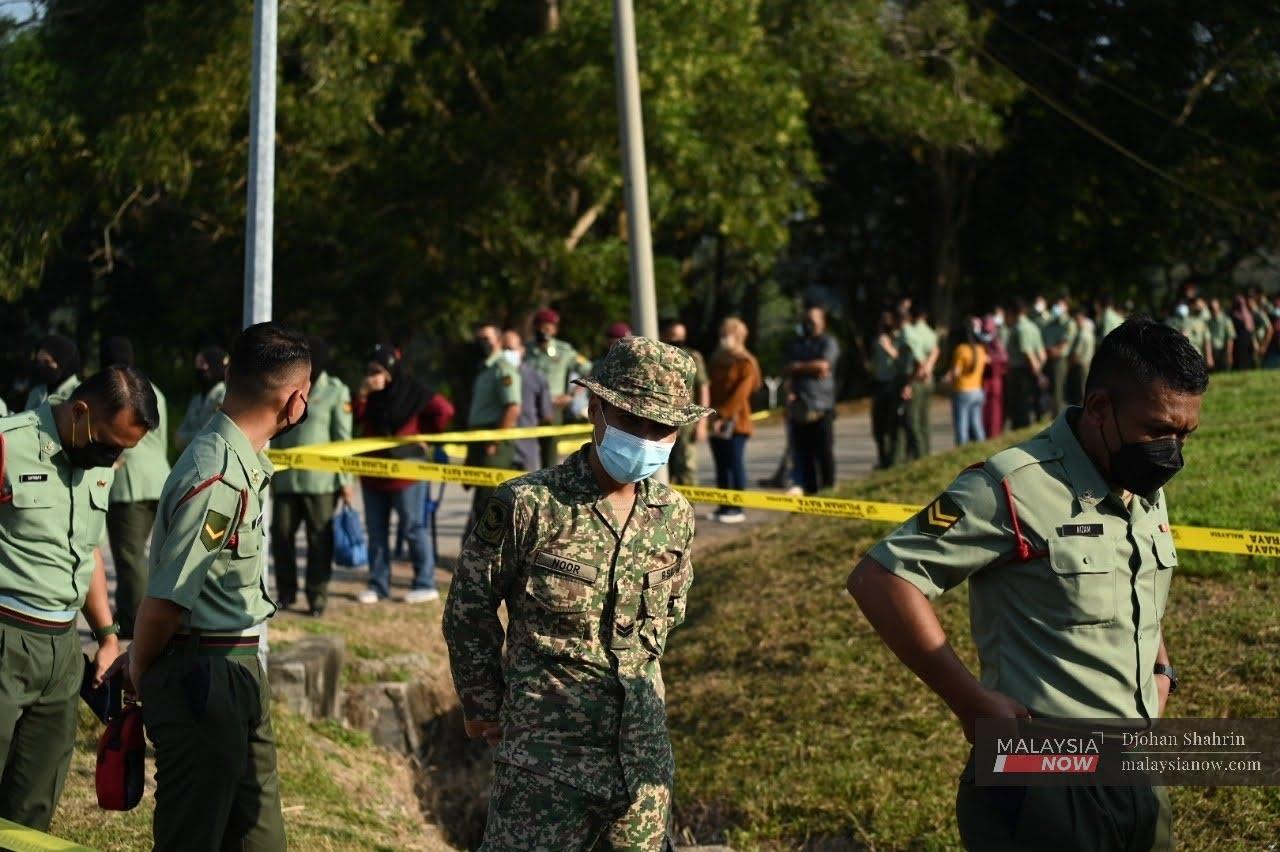Muhyiddin’s popularity as ex-PM lost BN its ‘fixed deposit’ in Sungai Udang, say analysts
The constituency has many military and police personnel who are grateful for the aid received during the Covid-19 crisis, they say.
Just In
While Barisan Nasional (BN) won by a landslide at the Melaka state election last weekend, political analysts say Perikatan Nasional’s (PN) victory in the Umno stronghold of Sungai Udang is indicative of civil servants’ support for the bloc led by former prime minister Muhyiddin Yassin.
The defeat of Melaka BN deputy chairman Mohamad Ali Mohamad in the seat which Umno had dominated since independence to PN’s Dr Mohd Aleef Yusof was one of the surprise developments in the Nov 20 polls.
Both the Terendak and Sungai Udang military camps are located in the constituency, and half of the electorate there comprise military personnel and their spouses.
Ilham Centre, which had been monitoring the Melaka election campaign, said PN’s victory in the seat was a signal that civil servants are still grateful to Muhyiddin who had provided them with aid during the Covid-19 crisis.
“BN’s candidate was left behind in the first round, after the early votes were tallied,” its executive director Mohamad Hisommudin said.
“PN was able to win due to the increase in number of public votes.”
Aleef defeated Ali with 6,789 votes to 6,259, while Pakatan Harapan (PH) candidate Hasmorny Tamby obtained 2,035. Independent Mohd Zahar Hashim meanwhile received only 471.
BN won 21 of the 28 seats it contested, forming the state government with a two-thirds majority. PH meanwhile lost seven of the seats it had held before the dissolution of the state legislative assembly.
PN meanwhile won two seats through its component Bersatu: Sungai Udang and Bemban.
Hisommudin said Muhyiddin’s popularity as PN chairman and former prime minister was a big factor in the distribution of military votes.
Muhyiddin was sworn in as prime minister in March last year, as the first wave of Covid-19 began sweeping over the country, and his administration had introduced a number of stimulus packages and programmes to cushion the economic impact of the crisis.
The Pagoh MP resigned in August after losing his fragile majority following the move by 15 MPs led by Umno president Ahmad Zahid Hamidi and former leader Najib Razak to withdraw their support for him.
Military and police votes have long been seen as a “fixed deposit” for BN.
A swing in support by these groups saw BN losing several seats during the 14th general election, including Setiawangsa and Lumut.
Mazlan Ali of Universiti Teknologi Malaysia agreed that military personnel had received many benefits during Muhyiddin’s administration.
“They may also have seen the political polemics sparked by Umno and therefore decided to vote for PN instead,” he said, referring to the withdrawal of support by four assemblymen which paved the way for the Melaka polls.
The four assemblymen were Idris Haron (BN-Sungai Udang), Nor Azman Hassan (BN-Pantai Kundor), Noor Effandi Ahmad (Bersatu-Telok Mas) and Norhizam Hassan Baktee (Bebas-Pengkalan Batu).
Hisommudin said Idris, a former Sungai Udang assemblyman and ex-chief minister who campaigned on a PH ticket in the Melaka polls, had played a role in BN’s defeat in the constituency.
“Idris still has strong support there,” he said. “And the internal turmoil did not help BN.”
PN had also fielded a younger candidate who was known in the constituency, he said.
“For those on the fence and those voting for the first time, the PN candidate was more attractive and able to win over their support.”
Subscribe to our newsletter
To be updated with all the latest news and analyses daily.
